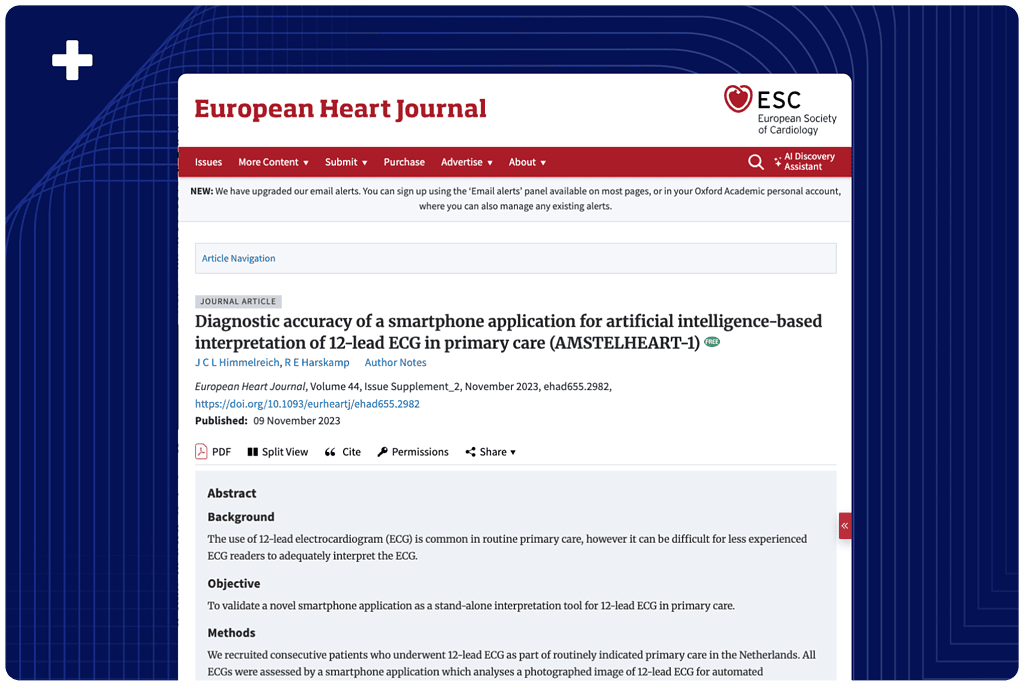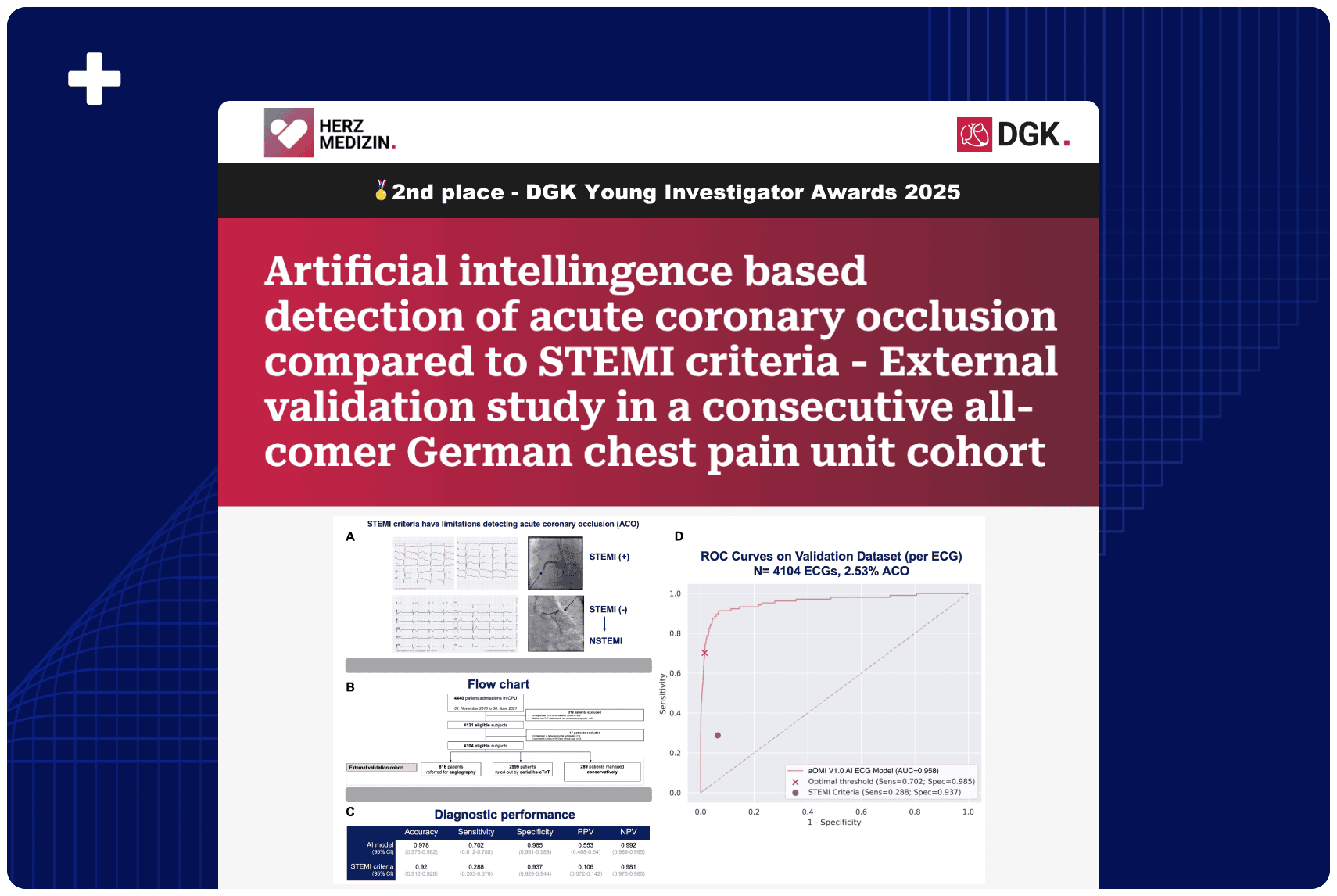Overview:
Accurately interpreting 12-lead ECGs in primary care can be challenging for clinicians due to limited training, time constraints, and variability in expertise. This study validated the PMcardio Core AI ECG Model for AI-driven ECG analysis, demonstrating 86% sensitivity and 92% specificity for major abnormalities, along with near-perfect accuracy for atrial fibrillation, highlighting its potential to enhance early case detection.
Published In: European Heart Journal
Presented Date: November 9, 2023
Background
The use of 12-lead electrocardiogram (ECG) is common in routine primary care, however it can be difficult for less experienced ECG readers to adequately interpret the ECG.
We sought to validate a novel smartphone application as a stand-alone interpretation tool for 12-lead ECG in primary care.
Methods
We recruited consecutive patients who underwent 12-lead ECG as part of routinely indicated primary care in the Netherlands. All ECGs were assessed by a smartphone application that analyses a photographed image of a 12-lead ECG for automated interpretation, installed on an Android platform and an iOS platform.
We validated the application for detecting: 1) any major ECG abnormality (MEA, primary outcome) defined as atrial fibrillation/flutter (AF), markers of (past) myocardial ischemia or clinically relevant impulse and/or conduction abnormalities; or 2) AF (key secondary outcome). The reference standard was a blinded expert panel.
Results
We included 290 patients from 11 Dutch general practices with median age 67 (IQR 55-74) years, 48% were female. On reference ECG, 71 patients (25%) had MEA, 35 (12%) had AF. The app’s sensitivity and specificity for MEA were 86% (95%CI:76-93) and 92% (95%CI:87-95), respectively.
For AF, sensitivity and specificity were 97% (95%CI:85-100) and 99% (95%CI:97-100), respectively. Performance was comparable between Android and iOS platform (Kappa=0.95, 95%CI:0.91-0.99 and Kappa=1.00, 95%CI:1.00-1.00 for MEA and AF, respectively).
Conclusion
A smartphone application that interprets photographed 12-lead ECG images had good diagnostic accuracy in a primary care setting for major ECG abnormalities, and near-perfect properties for diagnosing AF.
Authors: J C L Himmelreich, R E Harskamp












